Tennessee Gov. Bill Lee visits Memphis Christian school to tout expanded voucher plan
According to New Hope Christian Academy Principal Lionel Cable, 99% of its students graduate from high school and 99% get accepted to college. Many of the students at the local pre-K-6 school also come from low-income backgrounds, with at least 80% qualifying for free or reduced lunch.
Though the school’s tuition is $12,500 a year, 99% of its students receive financial aid, the majority pay less than $40 a month, and 159 of them are recipients of Gov. Bill Lee’s Education Savings Account program ― which provides $9,000 in state funds to cover tuition and other expenses at private schools.
So, as Lee tours the state making the case for his latest voucher proposal, the Education Freedom Scholarship Act, New Hope was an ideal place to visit. When it comes to school choice, Cable explained, New Hope is “ground zero.”
'I'm not against public schools'
On Wednesday morning, Lee and Tennessee House Speaker Cameron Sexton spoke at New Hope, where they touted the benefits of school vouchers and the proposed legislation, which would offer 20,000 Tennessee students about $7,075 to attend a private school of their choice beginning in the 2024-25 school year.
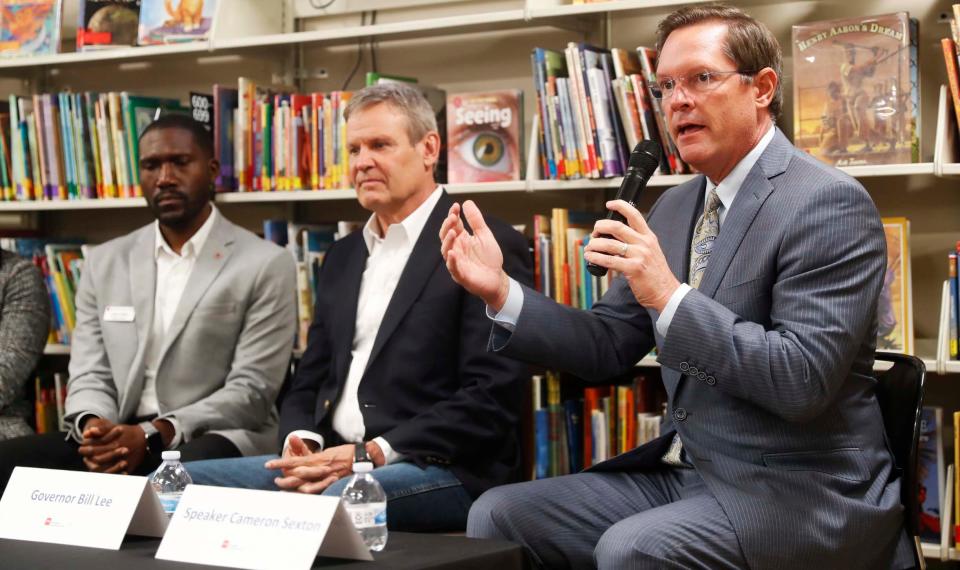
“There’s nobody that knows better what their child needs for education than a parent,” Lee said. “To the degree that we can give parents the ability to make choices that they think are best for their kids, we win. Every type of school is different, and they meet different needs for different kids.”
Lee and Sexton also weren’t alone in speaking during the event, as they were flanked by Cable and two mothers, Nicole Lytle and Kellee Bowman, who have children who are ESA recipients. With Lee and Sexton asking them questions, the three sought to strengthen the politicians’ case for the Education Freedom Scholarship Act, talking about how the opportunity to send their kids to private schools has been beneficial.
Lytle, for example, noted that her youngest child, a 9-year-old, has autism. Not every school is going to be an ideal fit for him. But she was able to send him to New Hope, which has been accommodating and invested in “his giftings and abilities.”
“He would have fallen through the cracks. He’s quiet and can be easily missed. But he’s just blossomed and he’s a social butterfly,” Lytle said. “Being a person of color, I have a lot of friends who say, ‘Hey, how is your kid doing in a private school?’ They’re being encouraged, they’re being taught well, and they’re learning how to learn.’”
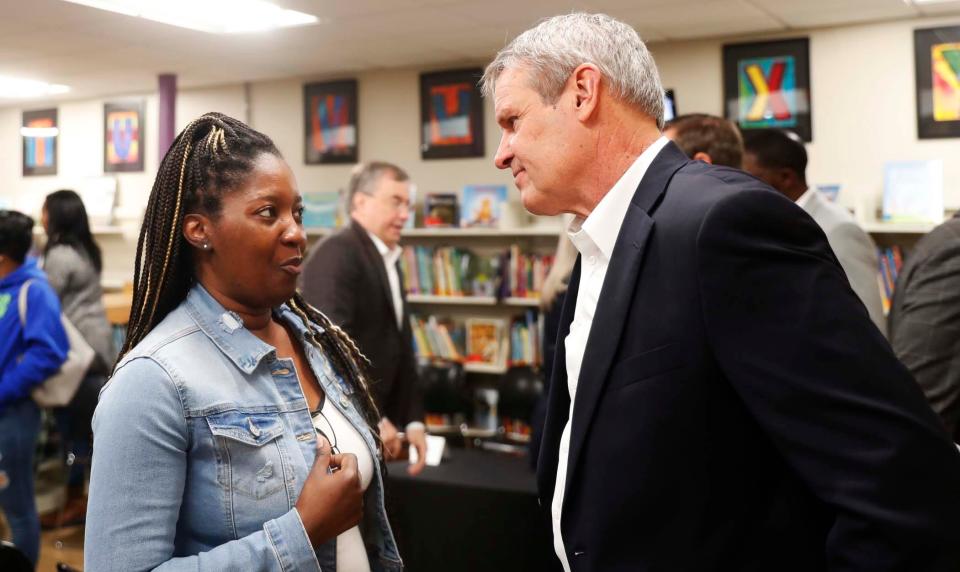
But neither Lytle nor the others speaking at New Hope on Wednesday attacked public schools, instead striking a conciliatory tone that emphasized the importance of public and private schools. They said it came down to giving parents the autonomy to choose whatever route they wanted for their children.
“I’m not against public schools,” said Cable, a former administrator for Memphis-Shelby County Schools. “I'm for all schools. Parents just deserved the choice to send the child to the school that's going to meet the child's needs and also align with their values.”
Lee, clearly pleased with Cable’s remarks, shared a similar sentiment.
More: MSCS board to publicly interview five finalists for superintendent job on Friday
“We are continuing to invest heavily in improving all of our public schools, public charters and traditional public schools, because we know that the vast majority of kids in our state are going through those schools,” he said. “This is not an either-or… It needs to be supporting public schools and funding them appropriately and giving parents the opportunity to come to a place like New Hope.”
Addressing concerns
While the feelings for vouchers at New Hope were warm and grateful, school districts in the Memphis area and throughout the state have strongly denounced Lee’s latest proposal. MSCS leaders have criticized it, and even suburban districts, which have often supported the conservative legislature, have derided the Freedom Education Scholarship Act.
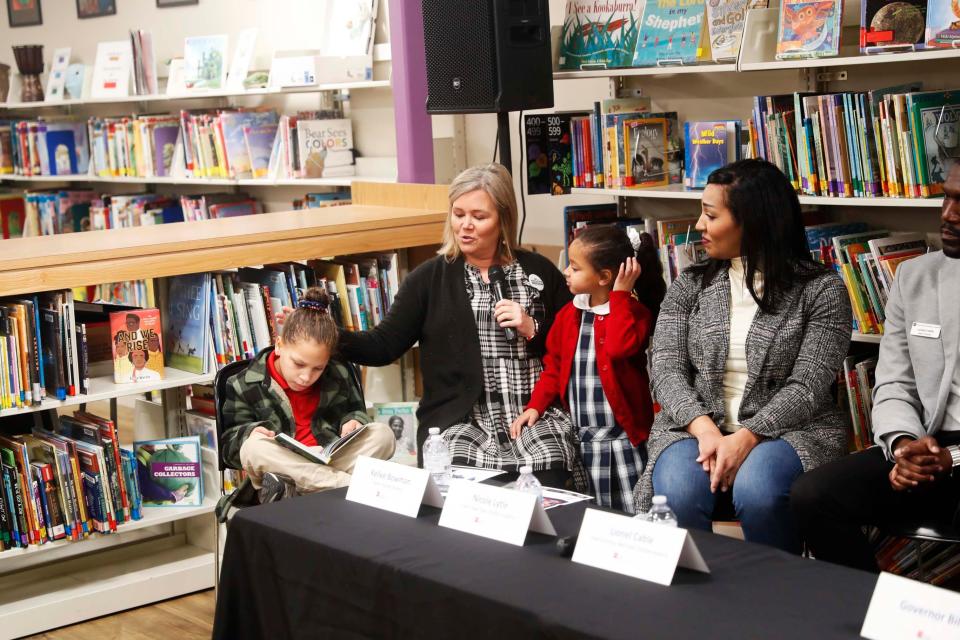
Ted Horrell, superintendent of the Lakeland School District, recently told The Commercial Appeal that “any plan that takes funds away from public schools has the potential to hurt public schools,” and emphasized that private schools don’t have to follow the same state regulations that public schools do. Earlier this month, Collierville town and school officials came together to voice their opposition to the plan, approving a resolution to oppose it.
And around that time, Arlington Community Schools leaders issued a scathing statement, saying “the proposed voucher expansion, if passed, will continue to siphon money from public schools to private schools who are beholden to no one.”
“Vouchers are the state’s way of slowly defunding public schools while using your tax dollars to prop up private businesses who are held to zero accountability,” it continued.
After the event, the districts’ concerns arose during a Q&A session Lee and Sexton had with members of the media, and the two maintained that the proposal ― which is expected to be filed before the state’s next legislative session ― won’t harm public schools.
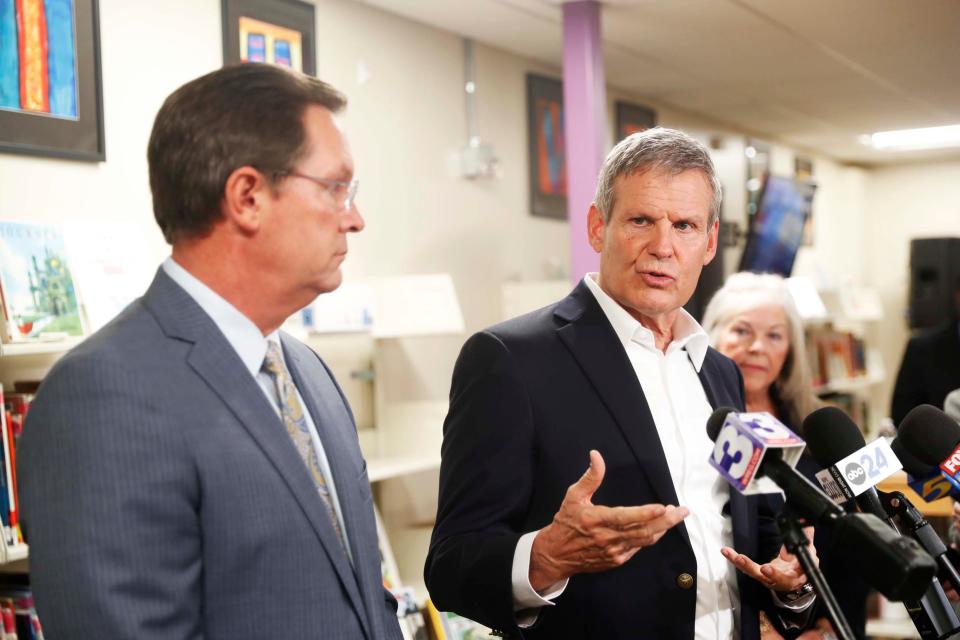
The Education Freedom Scholarship Act, Lee explained, will have a different funding mechanism than the Tennessee Investment Student Achievement plan, which determines how much money goes to public school districts.
“That's how you ensure that public schools continue to be funded appropriately… and at the same time, have a mechanism that allows for choice for parents,” he said.
Sexton added to this, asserting that the state has almost tripled its investments in public education during the last two administrations and that hearing concerns of the public school leaders could enhance the bill.
“When the schools and the school boards say, ‘Well, we need more resources,’ We challenge them. ‘What resources do you need?’ And what we get back is silence,” he said. “They say, ‘Well, we need more money in this field for these types of kids.’ ‘Okay, well, what is that number?’ [Districts say] ‘We don’t know.’ So, part of the conversation is, we want the school systems to tell us, if they need this and this and this, then give us the details, in the exact answers, of what they're looking for.”
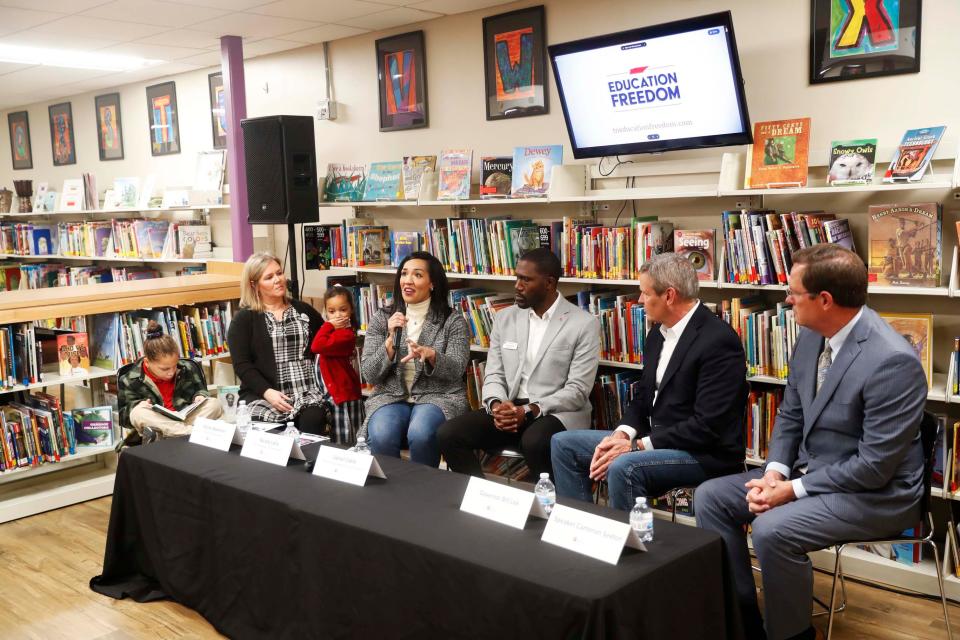
Sexton ― who was going to meet with suburban school district leaders after the event ― also addressed a major concern raised by many school districts. If private schools enroll students receiving vouchers, they’re receiving a form of government funding. But the schools still don’t face the same restrictions, oversight, and accountability as public schools.
High-performing public schools, he suggested, could be given the same “freedom and autonomy” as private schools.
“Why not reward quality instead of trying to treat all schools the same, regardless of where they are?” he said. “Let's put more emphasis on the failing and more oversight. But if you're achieving, then let's give you more autonomy and more freedom… That's what we want to do. But we need those conversations with the school systems to tell us what that looks like.”
This article originally appeared on Memphis Commercial Appeal: Governor to visit Memphis to promote expanded Tennessee voucher plan
